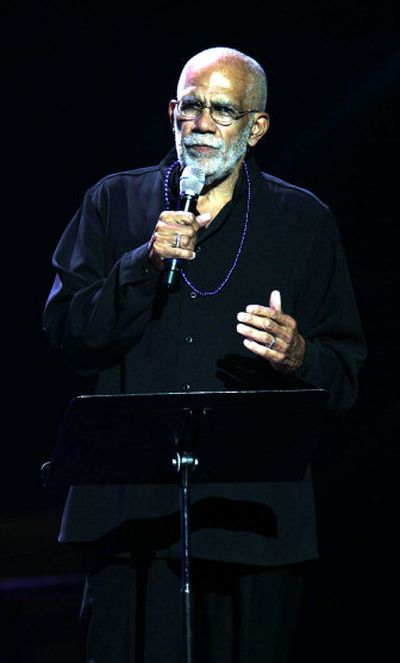‘60 Minutes’ newsman Ed Bradley, 65, dies

NEW YORK – Ed Bradley, the dapper CBS correspondent who was a mainstay of the Sunday night program “60 Minutes” for a quarter-century, died here Thursday of complications related to leukemia. He was 65.
The death of the CBS veteran, one of the first blacks to gain a foothold in network television, shocked many of his colleagues who knew he had undergone heart bypass surgery in 2003, but were unaware he had been diagnosed with leukemia in recent years.
Bradley had been in the office just two weeks ago, wrapping up work on a piece about an explosion at a Texas oil refinery. That story ran Oct. 29, the same day he was hospitalized at Mount Sinai Hospital because of complications of leukemia, which had been in remission until the past few months.
“60 Minutes” correspondent Morley Safer, whose office was next to Bradley’s for the past 25 years and who was one of the few who knew he suffered from leukemia, called the reporter “a gold standard of television journalism.”
“I lost a friend and a neighbor, and it seems like we lost him at a very early age,” Safer said.
Bradley’s 35-year career at CBS News took him from the front lines of Vietnam to the White House before he was tapped in 1981 to replace Dan Rather on “60 Minutes” when the latter took over the evening newscast.
He landed the coveted job in large part because of his on-air persona, which captured the attention of then-executive producer Don Hewitt.
“I was just an admirer of his broadcast style: calm, cool, collected – nothing seemed to perturb him,” Hewitt said. “I thought, that’s the guy for ‘60 Minutes.’ “
Once on the venerable program, Bradley applied his probing approach to a wide range of topics, scoring interviews with Timothy McVeigh, Muhammad Ali and Tiger Woods and investigating stories about nuclear fallout, the lack of AIDS drugs in Africa and sexual abuse in the Catholic Church.
“He could do a story about anything,” said “Face the Nation” moderator Bob Schieffer, who worked with Bradley at the White House. “What made him so good was that he had this ability when interviewing people to get them to be themselves. Sometimes that was to their advantage and sometimes it wasn’t.”
Bradley bristled at being seen as a “black reporter,” but his success at a time when few blacks were on the air made him a trailblazer in the industry. While he did not want to be pigeonholed on the race beat, he tackled many stories on the subject, including the 1979 piece “Blacks in America: With All Deliberate Speed,” which examined the state of racial progress in the United States.
Two years later, he drew acclaim for his poignant profile of Lena Horne, in which the singer emotionally discussed what it was like to grow up as a light-skinned black woman who could pass as white. The story garnered him an Emmy, one of 20 he accumulated over the course of his career, including one in 2004 for the reopening of the 50-year-old murder case of Emmett Till. He got his last Emmy for a profile of Apollo astronaut Neil Armstrong that ran last season.
One characteristic that distinguished Bradley was his full-throated pursuit of interests outside of work, friends said.
“We both agreed that there’s more to life than this show, and I think Ed kept the faith on that,” Safer said. “He just had a very full life.”
A passionate fan of the New York Knicks and a jazz aficionado, Bradley was also a workout buff who, until recently, went to a gym during his lunch hour every day. An avid skier, he frequently made trips to his home in Woody Creek, Colo., near Aspen, with his artist wife, Patricia Blanchet, who survives him.
Bradley was something of an iconoclast in the staid “60 Minutes” newsroom, startling many when he began sporting a gold earring in the 1980s.
“That really upset some people, but he could carry it off,” Schieffer said. “He was the coolest guy I ever knew.”